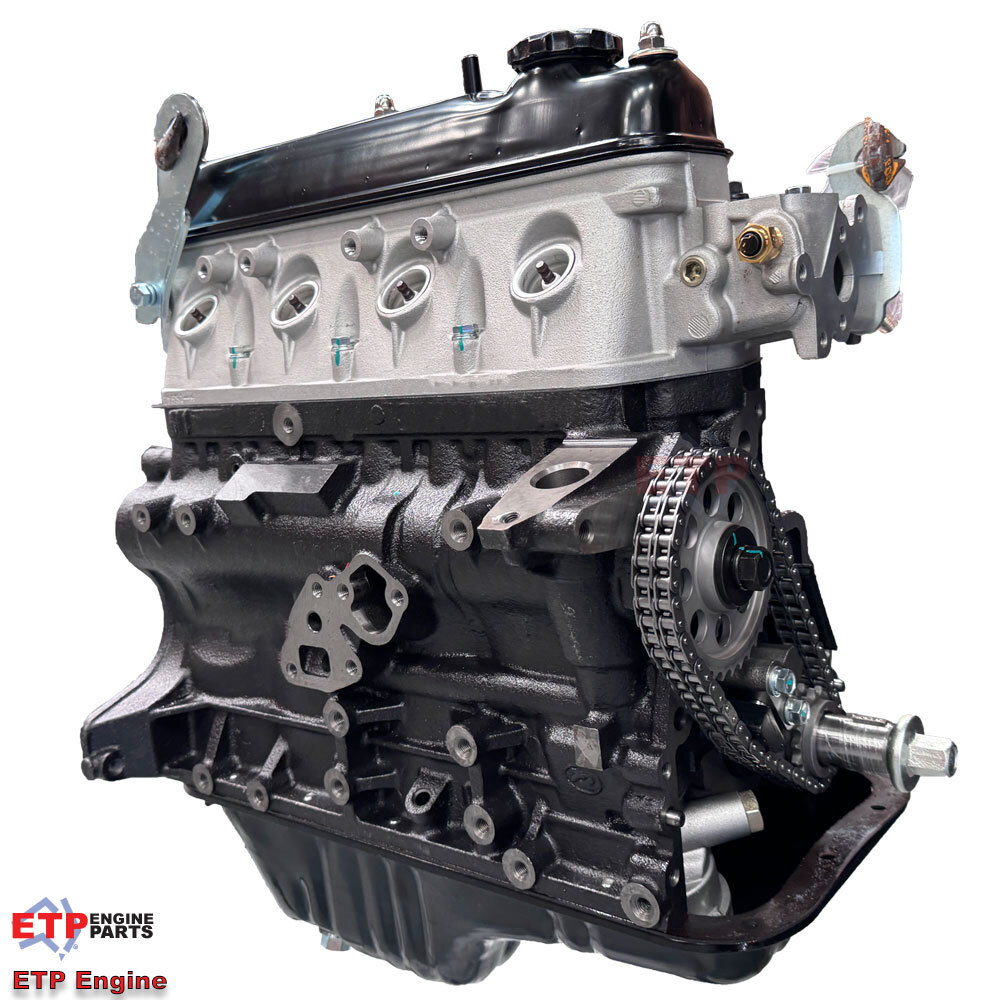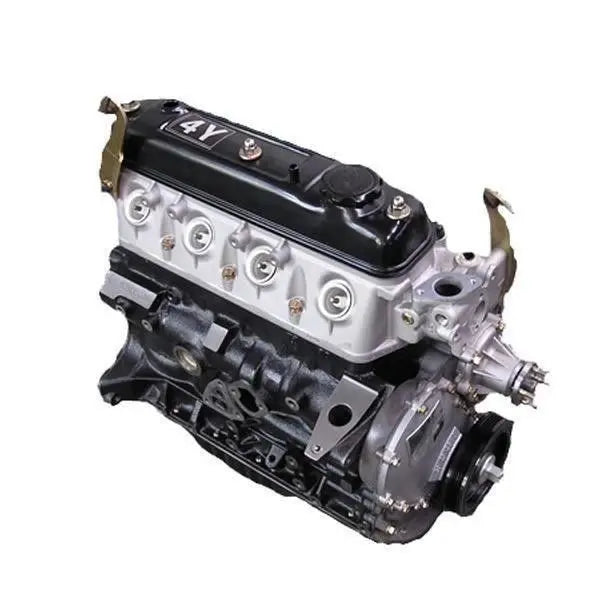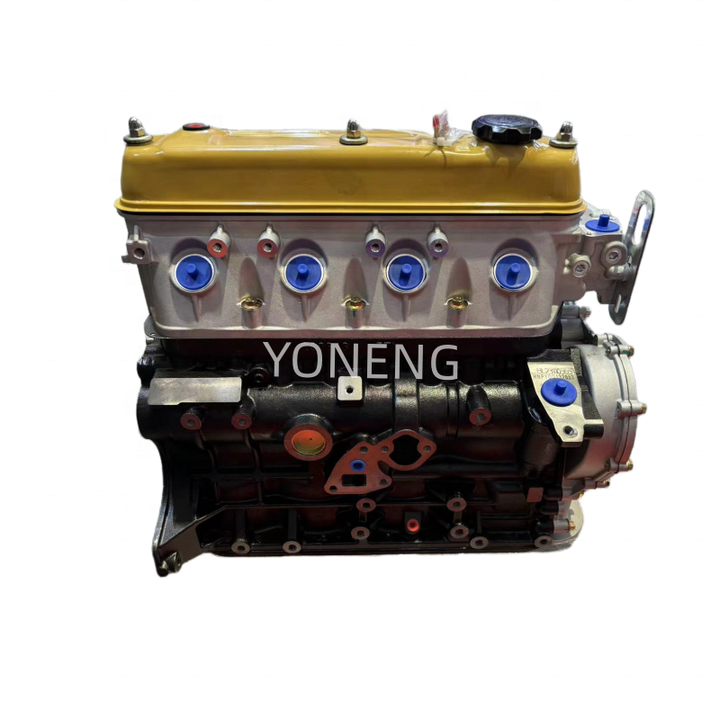Exploring the Benefits of the 4Y Engine for Automotive Enthusiasts
Exploring the Benefits of the 4Y Engine for Automotive Enthusiasts
Blog Article
The Ultimate Guide to the Engine: Secret Insights for each Automobile Lover
Understanding the engine is basic for any automotive fanatic, as it acts as the heart of the vehicle and dictates its performance. This guide gives a complete examination of engine makeup, types, and the auto mechanics behind their operation, consisting of the ingenious technologies that are reshaping the automotive landscape. It highlights the vital nature of maintenance practices that can substantially impact an engine's life-span. Nevertheless, the complexities of engine characteristics and the current advancements in innovation existing inquiries that warrant more exploration. What might these insights reveal concerning the future of automotive engineering?
Composition of an Engine
Recognizing the anatomy of an engine is critical for any kind of auto lover aiming to dig much deeper into automotive mechanics. An internal burning engine mostly contains a number of vital elements that function in unison to convert gas into mechanical energy.
At the heart of this system exists the cyndrical tube block, which houses the cylinders where burning takes place. Piston motion within these cyndrical tubes is assisted in by the crankshaft, which equates direct motion right into rotational energy. Furthermore, the camshaft plays an essential function in controlling the opening and closing of the engine's shutoffs, making certain proper air-fuel mixture consumption and exhaust gas expulsion.
Various other vital parts consist of the fuel system, which provides the engine with the needed fuel, and the ignition system, liable for starting burning - 4y engine. The cooling and lubrication systems are likewise essential, preserving ideal operating temperature levels and reducing friction, specifically
Engine Kinds and Configurations
A diverse range of engine types and setups exists, each offering unique advantages and negative aspects customized to various driving demands and choices. One of the most typical engine types include inline, V, level, and rotating configurations.
Inline engines, including cyndrical tubes organized in a solitary line, are understood for their simplicity and efficiency. They are usually located in portable lorries, supplying an equilibrium of power and economic situation. V engines, identified by their two financial institutions of cylinders prepared in a V form, give higher efficiency and smoother procedure, making them popular in sports and luxury cars and trucks.
Level engines, or fighter engines, have actually horizontally opposed cyndrical tubes, which add to a lower center of mass, enhancing automobile security. These are typically seen in brands like Subaru and Porsche.
Rotating engines, although much less usual, make use of an one-of-a-kind design with a triangular rotor and offer high power-to-weight proportions. They stand out in lightweight and small applications, mainly seen in Mazda lorries.
Each engine type serves specific performance qualities, weight circulations, and fuel effectiveness, making sure that vehicle enthusiasts can visit site choose the right engine setup to match their driving design and vehicle needs.

How Engines Function
Engines, despite their kind or arrangement, operate on essential concepts that control their efficiency and performance. At their core, engines convert gas right into mechanical energy via a series of controlled explosions or compressions. This procedure normally involves 4 primary strokes: intake, exhaust, power, and compression.
Throughout the consumption stroke, the engine attracts in a blend of air and gas. In the power stroke, a trigger fires up the pressed combination (in gas engines) or the combination sparks automatically (in diesel engines), resulting in a fast expansion of gases that presses the piston down.
The performance of an engine is affected by various variables, including the layout of the burning chamber, the type of fuel utilized, and the accuracy of the engine's parts. Recognizing these fundamental principles is important for vehicle enthusiasts that seek to value the intricate auto mechanics behind their automobiles, along with for those intending to enhance performance through modifications click this link and adjusting.
Developments in Engine Technology
Recently, innovations in engine technology have considerably transformed the vehicle landscape, enhancing both performance and ecological sustainability. Among the most noteworthy advancements is the advancement of turbocharging and supercharging, which enables smaller engines to create greater power outputs without sacrificing gas effectiveness. This has caused an increase in the popularity of scaled down engines, supplying manufacturers with the ability to fulfill rigorous discharges policies while maintaining efficiency standards.
In addition, hybrid and electrical powertrains are reshaping the engine standard. Crossbreed systems incorporate inner combustion engines with electrical motors, maximizing fuel consumption and minimizing exhausts. Completely electric automobiles (EVs) remove the burning engine entirely, counting on advanced battery innovation to provide instantaneous torque and remarkable velocity.
Furthermore, the integration of expert system and equipment understanding in engine administration systems permits real-time optimization of efficiency parameters, enhancing effectiveness and responsiveness. Technologies such as variable shutoff timing and direct gas injection further improve combustion procedures, making best use of power output while decreasing waste.
As the automotive market continues to develop, these developments in engine technology will certainly play an important role in shaping the future of movement, prioritizing both efficiency and sustainability.
Maintenance Tips for Fanatics
Keeping an engine is as crucial as the innovations that enhance its performance. Routine upkeep not only lengthens the life of your engine however also ensures optimum efficiency.
Inspect and replace air filters occasionally to guarantee correct air movement, which is essential for combustion performance. A clogged air filter can cause decreased efficiency and boosted fuel consumption. Monitor the coolant degrees to protect against getting too hot, and look at these guys replace coolant according to the service timetable. 4y engine.

Final Thought
In final thought, a comprehensive understanding of engine makeup, kinds, and auto mechanics is important for vehicle fanatics. Normal maintenance practices, consisting of oil modifications and air filter checks, are important for making sure optimum engine performance and longevity.

Engines, no matter of their kind or configuration, operate on fundamental principles that control their performance and performance. In the power stroke, a spark fires up the pressed mix (in gasoline engines) or the mixture fires up spontaneously (in diesel engines), resulting in a quick growth of gases that presses the piston down.In recent years, advancements in engine innovation have actually considerably changed the auto landscape, enhancing both efficiency and ecological sustainability.
Report this page